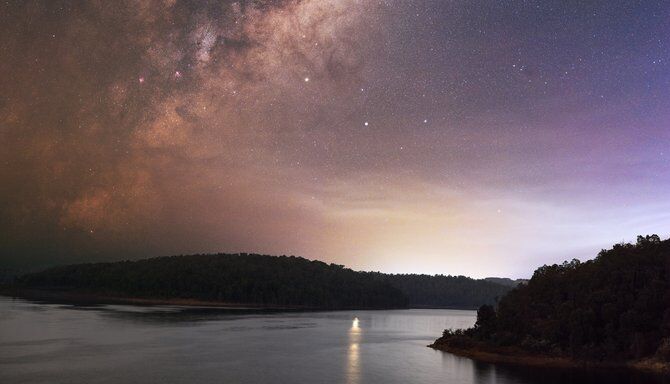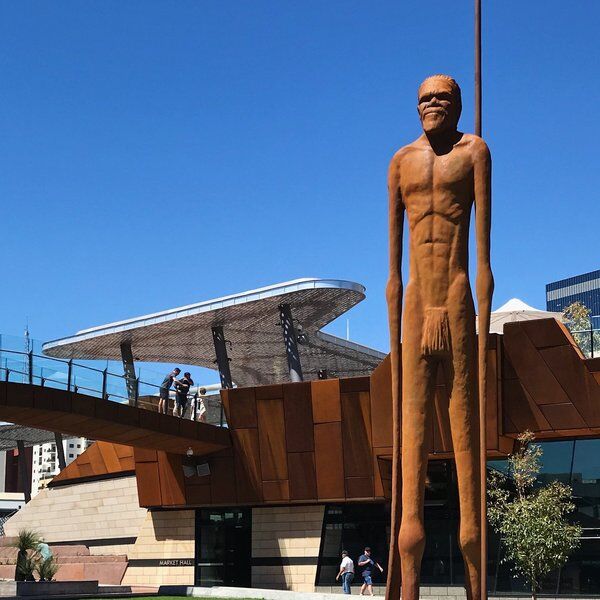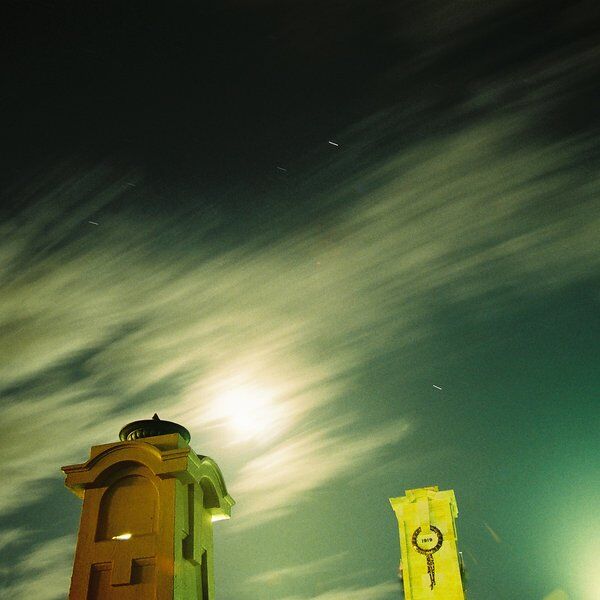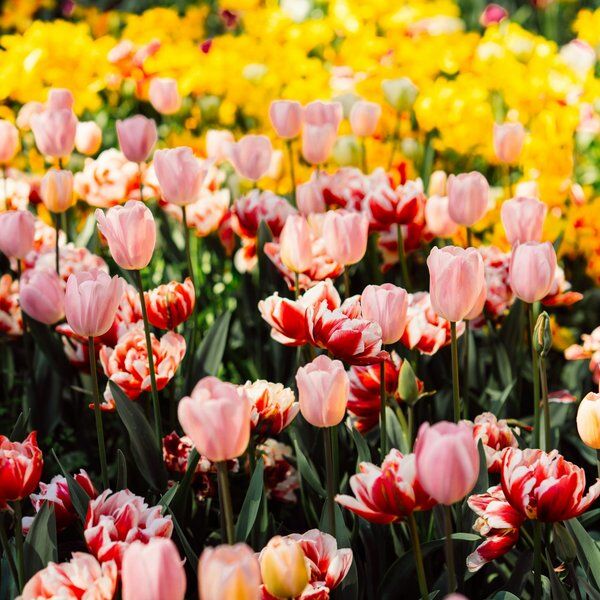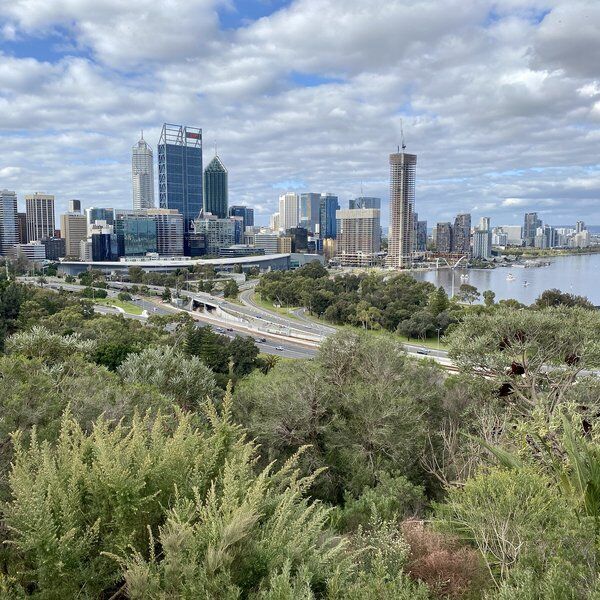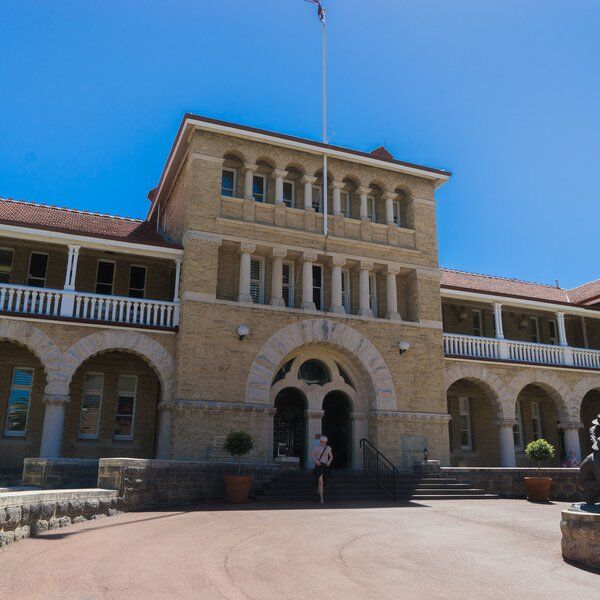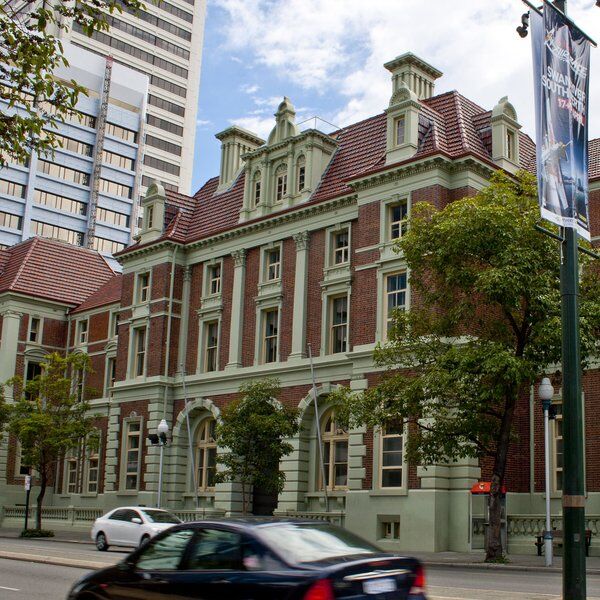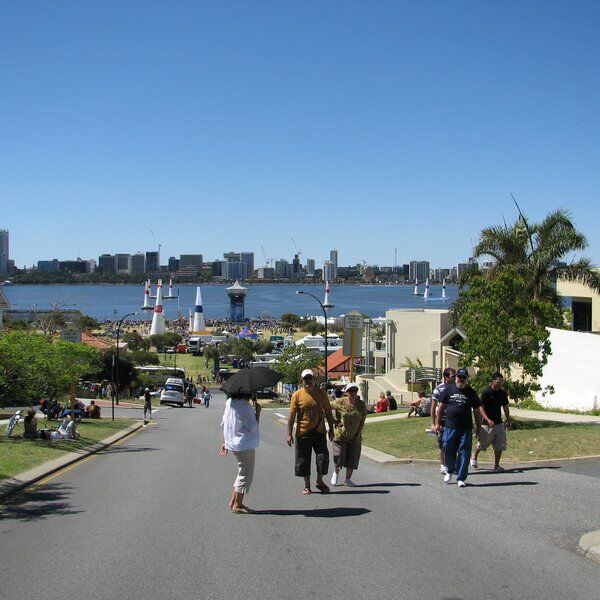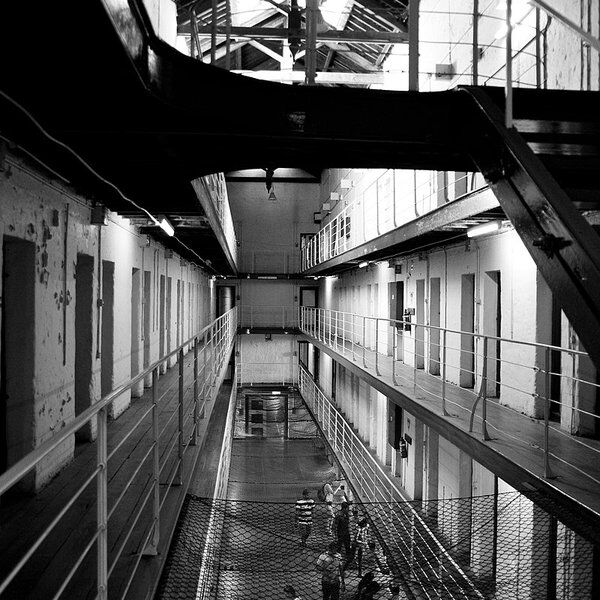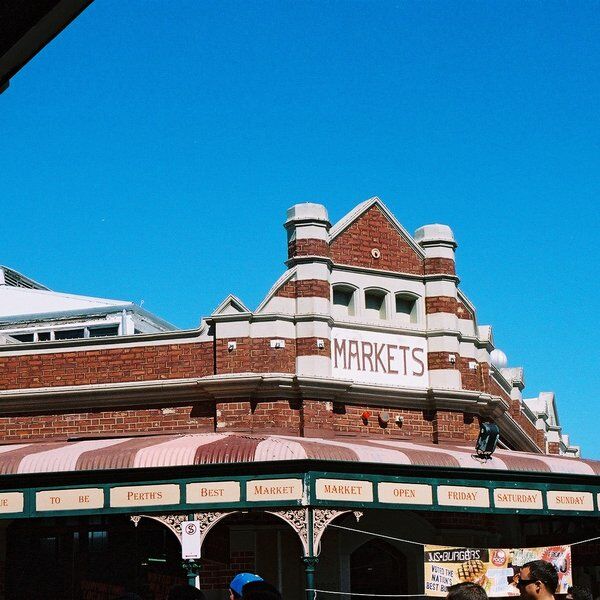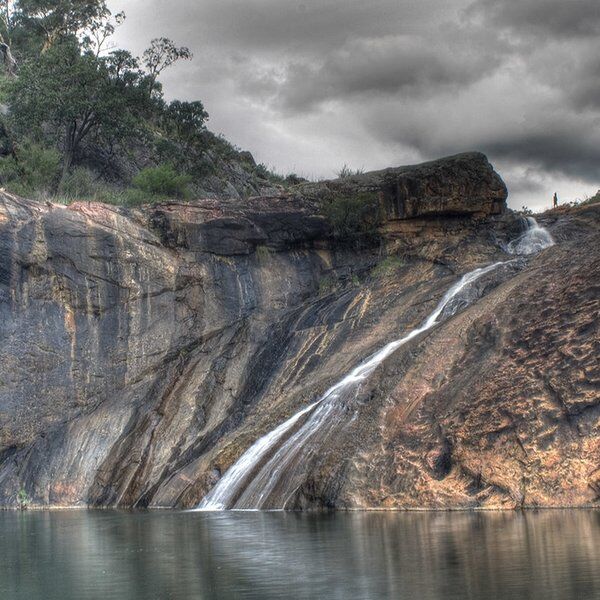
What is Serpentine Falls?
55km south-east of the city (less than an hour drive) Serpentine National Park boasts an array of fantastic walking trails, stunning scenery, wildflowers, rare birds and wildlife, and at its heart an impressive collection of waterfalls, Serpentine Falls.
These attractions make it a popular place to visit, especially during winter when lower temperatures provide ideal hiking conditions, and spring when the flowers are in full bloom. Expect to see spider orchids, greenhoods, triggerplants and more.
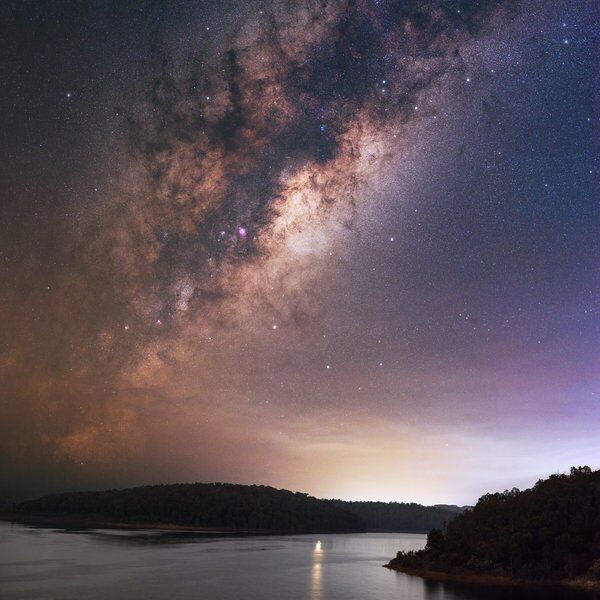
Hiking at Serpentine Falls
The falls themselves are most impressive during and after rainy spells, the excess water tumbling down 15m granite outdrops and filling the rock-lined pools below. They are great to relax next to but can be explored fully with the Falls Walk Trail, a 400m loop (about 15 minutes).
Longer hikes are also available, starting at the falls. These include the Baldwin's Bluff Nature Trail, a 6km (about 2 hours) loop through woods, plains and of course around the falls; and Kitty's Gorge, a 7.4km (about 2.5 hours) loop to the nearby town of Jarrahdale and back. For those who like the sound of this last option we recommend a halfway lunch/pint stop at Jarrahdale Tavern.
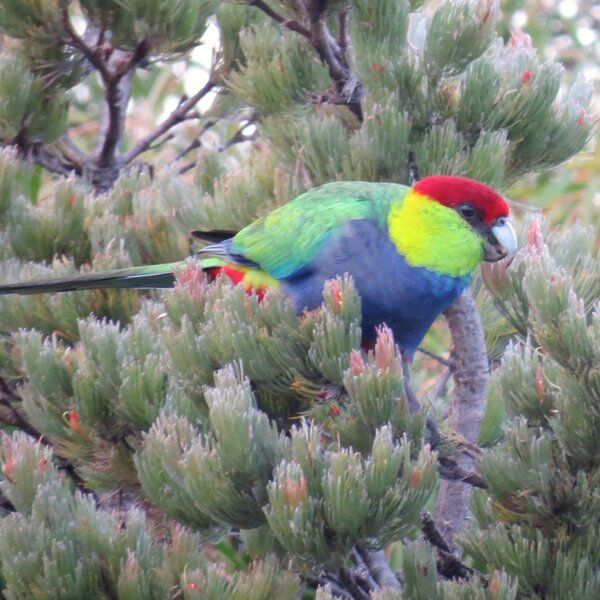
The Wildlife of Serpentine Falls
One of the best things about Serpentine Falls and its hikes is the local wildlife. Not only will you see an abundance of kangaroos but if you keep your eyes peeled you'll likely come across a few rare birds. Serpentine National Park overlaps with the North Dandalup Important Bird Area, so is great for those hoping to spot black cockatoos, red-capped parrots, red-winged fairywrens, and other species you would struggle to find elsewhere.
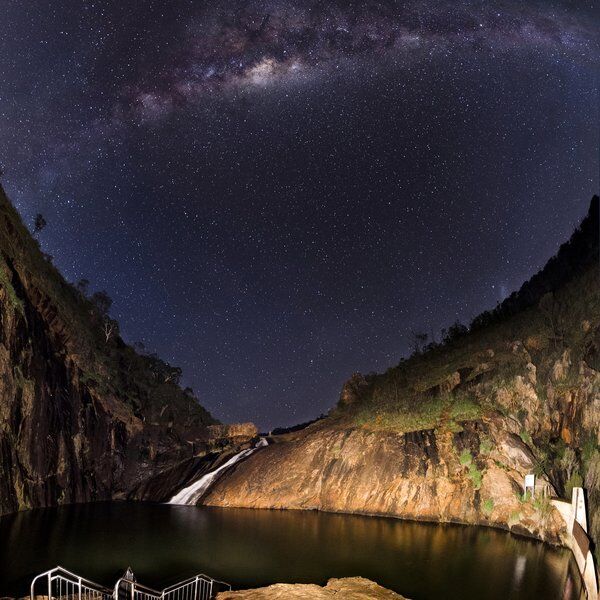
Visiting Serpentine Falls
Serpentine Falls opens between 8.30am-5pm daily and entrance costs $15/car or is free with a Park Pass. On busy days spaces can fill up quickly so it is advisable to get there before 10am. If you arrive to find there is no room then Serpentine Dam is a great nearby alternative.
Picnic tables, toilets and BBQs are available by the falls, and often on weekends a foodtruck too.
No dogs, glass or alcohol are allowed.
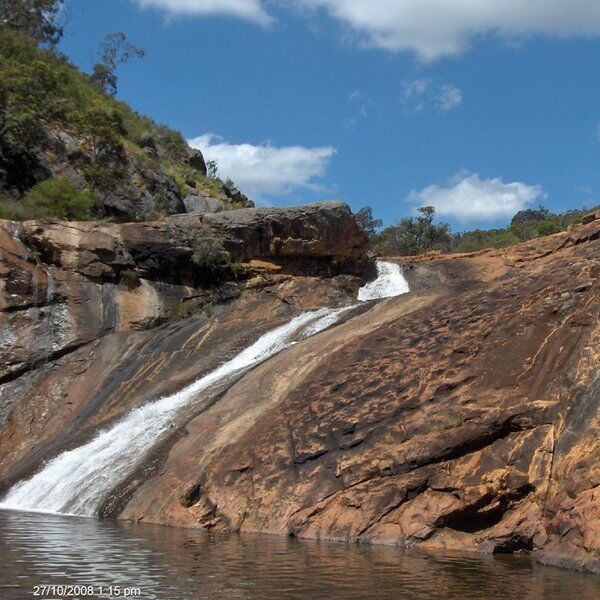
A Brief History of Serpentine Falls
The falls and the surrounding area are the ancestral home of the Noongar People. For thousands of years before the arrival of the European colonists they lived here off the land, hunting kangaroos and possums, fishing with spears and traps, and foraging for yams, nuts and seeds.
They likely numbered between 6,000 and some tens of thousands in the early 19th century. In 1849 however the British established the Swan River Colony and the Noongar population were soon decimated by western disease, violence and over-hunting.
Waangaamaap Bilya
Traces of these vices can be seen in the names of the area's landmarks. The escarpment that Serpentine Falls flows down is now known as Darling Scarp, named after the Governor of NSW between 1825-31, Ralph Darling.
Darling was a notorious tyrant who railed against press freedom, smothered the arts and handed out land grants to his friends and family. Despite this modern maps prefer to use his name as opposed to the Noongar term for the ridge, KattaMorda.
The falls too are more often known by their western name; their Noongar name is Waangaamaap Bilya.
Learn more about the history of Aboriginal Peoples across Australia in our article on Bungarribee House.
Interested in finding more places like this? Try one of our CityDays Urban Exploration Games- untangle cryptic clues as a team, as you are taken on a journey to the most unique, unusual and bizarre corners of Perth and beyond!
